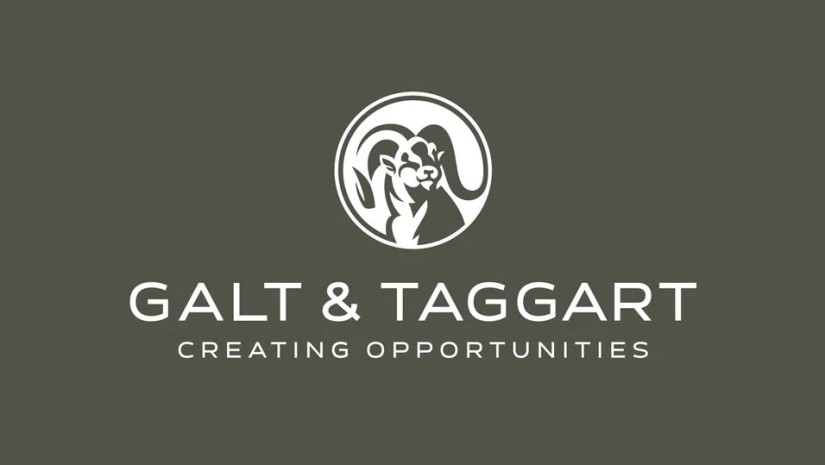Galt&Taggart published the Global Markets Weekly Update. According to the document:
USA
Stock market overview:
The S&P 500 had its most challenging week of the year on Friday, marking only its fourth negative week in 2024. This downturn was mainly influenced by robust labor market data, which suggested that the Federal Reserve might not rush to lower interest rates. Moreover, a surge in commodity prices reignited concerns about inflation, while rising Treasury yields added pressure to equities. The nonfarm payrolls report released on Friday exceeded expectations, showing the addition of 303,000 jobs, a decrease in the unemployment rate, and a slight increase in the labor force participation rate. These figures reinforce the belief that the Fed will take its time with interest rate cuts, leading to a reduction in market expectations for a 25-basis point rate cut at the central bank's June policy meeting. Throughout the week, the S&P 500 retreated by 1.0%, the Nasdaq Composite lost 0.8%, and the Dow slipped 2.3%.
Corporate news:
Tesla:
Tesla's stock took a hit after reports surfaced that the Model 2 project might not move forward as expected. Shares initially dropped 6.2% to $160.52 before rebounding slightly to close at $164.90. Meanwhile, the S&P 500 and Nasdaq Composite saw gains of 1.1% and 1.2%, respectively. This decision by Tesla to focus on self-driving robotaxis was made in a February meeting, aligning with insights from Elon Musk's biography. Despite challenges, including competition in China and production issues, Tesla remains resilient. Analysts have adjusted delivery projections but maintain positive outlooks, with upcoming earnings and delivery reports crucial for assessing Tesla's trajectory.
Destiny Tech 100:
Destiny Tech100, a newly launched closed-end fund, debuted on the New York Stock Exchange on March 26 with a focus on investing in private high-growth tech companies. The fund saw an extraordinary surge in its stock price, rising by as much as 558% within a fortnight, propelling its market value to $644 million. It currently holds stakes in 23 companies and aims to eventually include 100 companies in its portfolio.
The fund's largest position is in Elon Musk's SpaceX, with a 34.6% stake. Other significant holdings include Epic Games at 4%, OpenAI at 3.8%, and Chime at 1.9%. Despite a steep management fee of 2.5%, the fund offers investors the opportunity to gain exposure to private companies that have the potential to generate significant returns before going public.
This surge in private tech company investments aligns with the predictions of analysts like Wedbush's Dan Ives, who believes that the AI revolution and improving ad spending will be the catalyst for a 15% rally in tech stocks in 2024.
Destiny Tech100's shares closed 76.51% up on Friday at $59.20, reflecting the growing interest and demand for investments in private tech companies among investors.
USA
General Electric:
General Electric (GE) has completed its long-anticipated breakup, with its aerospace and energy divisions now trading independently on the NYSE. This move marks a significant shift in GE's structure and operations, with notable impacts on its stock performance. The newly formed GE Aerospace (GE) saw a substantial drop of 22% in its share value on Tuesday, reflecting the changes following the breakup. On the other hand, GE Vernova (GEV), focusing on power and renewable energy, experienced a brief 5% increase before ending 1.4% lower. GE HealthCare (GEHC), which was spun off last year, has performed well compared to many other spinoffs.
This restructuring, orchestrated by CEO Larry Culp, is part of a broader strategy to streamline GE's operations and enhance its market focus. The breakup splits GE into three publicly traded entities: GE Aerospace (GE), GE Vernova (GEV), and GE HealthCare (GEHC). Each entity presents unique investment opportunities and challenges, shaping investor perceptions about their future growth potential.
From its origins in the late 19th century as a conglomerate synonymous with industrial innovation, GE has evolved into a more specialized and focused organization under Culp's leadership. The company's transformation involved selling off assets, reducing debt, and sharpening its strategic vision across its core business segments. Investors now face a diverse investment landscape with the breakup of GE. GE Aerospace (GE) remains a significant player in aviation, GE Vernova (GEV) aims to capitalize on renewable energy trends, and GE HealthCare (GEHC) focuses on medical imaging and diagnostics. Each entity's success will depend on industry trends, competitive positioning, and financial performance, making careful analysis essential for investors navigating this new era for General Electric.
What to watch next week:
This week, all attention will be on the March consumer price index (CPI) report set for release on Wednesday. Projections indicate a 0.4% increase in headline CPI on a month-over-month (M/M) basis, maintaining the level from February, and a 3.1% rise on a year-over-year (Y/Y) basis, slightly down from the previous +3.2%. Moreover, expectations suggest a deceleration in core CPI, with M/M and Y/Y figures dropping to +0.3% and +3.7%, respectively. In addition to the CPI report, investors eagerly anticipate the release of the Federal Reserve's March meeting minutes on Wednesday. Following robust labor market data last week that tempered expectations of interest rate cuts, market participants are keenly observing both the Fed's minutes and the consumer inflation report for insights into future monetary policy. Looking ahead, next week marks the beginning of the first-quarter earnings season. Notable companies reporting include Delta Air Lines (DAL) and Constellation Brands (STZ) on Wednesday and Thursday, followed by major banks like JPMorgan (JPM), Wells Fargo (WFC), Citigroup (C), and asset manager BlackRock (BLK) on Friday. These earnings releases will be closely watched for their impact on market sentiment and economic outlooks.
Europe
Eurozone inflation close to target; PMI revised up; ECB reaffirms rates policy
In local currency terms, the pan-European STOXX Europe 600 Index fell 1.19% during the holiday-shortened week, snapping 10 straight weeks of gains. Hawkish comments from some U.S. Federal Reserve policymakers and higher crude oil prices cast doubt on the timing of interest rate cuts. France’s CAC 40 Index dropped 1.76%, Germany’s DAX weakened 1.72%, and Italy’s FTSE MIB lost 2.13%. The UK’s FTSE 100 Index declined 0.52%.
Headline annual inflation in the eurozone decelerated more than forecast to 2.4% in March from 2.6% in February. Core inflation, which excludes volatile food and energy prices, also slowed to 2.9% from 3.1%. The year-over-year increase in service prices, however, came in at 4.0% for the fifth consecutive month.
Evidence suggests that the economy may be picking up after stagnating for the past year. S&P Global revised its estimate for the eurozone’s composite purchasing managers’ index (PMI), which includes services and manufacturing, to 50.3 in March from an initial 49.9. A reading above 50 indicates an expansion of private sector business activity.
Meanwhile, the minutes from the European Central Bank’s (ECB’s) March meeting showed that policymakers were increasingly confident that inflation was slowing to the target level in a timely manner. The majority felt that the case for rate reductions was strengthening but that it would be prudent to wait for key economic data that are scheduled to come out after the ECB’s April meeting.
UK housing market recovery picks up
Data released by the Bank of England pointed to improvement in the housing market. Net mortgage approvals reached their highest monthly level since June 2022, increasing to 60,400 from 56,500 in January.
Riksbank says currency could become pivotal in rate decisions
Minutes of the March meeting of the Swedish central bank suggested that currency developments could become more influential in policy decisions in the months ahead. The Riksbank said it is important that the Swedish krona does not depreciate further, as this could stoke inflationary pressures. The Riksbank left its key rate unchanged at 4.0% in March, adding that it might start cutting rates in May if inflation continued to slow.
Japan
BoJ governor signals that monetary policy could be used to address yen weakness
Japan’s stock markets fell over the week, with the Nikkei 225 Index slumping 3.4% and the broader TOPIX down 2.4%. Heightened geopolitical tensions and uncertainty about the U.S. Federal Reserve’s monetary policy trajectory weighed on global equities in general, while in Japan, speculation remained rife about whether the authorities would step in to prop up the yen. The Finance Ministry reasserted its readiness to respond to excessive moves in the foreign exchange markets, as the Japanese currency hovered around the high-JPY 151 level against the U.S. dollar, its lowest level in about 34 years. Over the past three years, weakness in the yen has provided a significant boost to Japan’s exporters—companies that tend to derive a major share of their earnings from overseas.
As the Bank of Japan (BoJ) hinted that another interest rate hike may be on the horizon, the yield on the 10-year Japanese government bond rose to 0.77% from 0.72% at the end of the previous week. BoJ Governor Kazuo Ueda signaled that the central bank could use monetary policy to address the historic weakness in the yen. Its primary concern is the impact of the Japanese currency’s weakness on price and wage growth, which have appeared to be on a reflationary trend. The BoJ targets a 2% level of inflation in a sustainable manner, accompanied by growth in wages, and asserts that monetary policy normalization hinges on these preconditions being met.
Last month, the central bank lifted short-term interest rates out of negative territory for the first time in over seven years—market participants seem to be converging around a view that two more rate hikes within the space of a 12-month period are likely. Nevertheless, Japan’s monetary policy remains among the most accommodative in the world, and financial conditions are expected to remain accommodative as well, for the time being.
China
Manufacturing activity expands for first time in six months
Chinese equities advanced in a holiday-shortened week, as data added to evidence that the economy could be gaining traction. The Shanghai Composite Index gained 0.92%, while the blue chip CSI 300 added 0.86%. In Hong Kong, the benchmark Hang Seng Index rose 1.10%, according to FactSet. Markets in mainland China were closed on Thursday and Friday in observance of the Qingming Festival, also known as Tomb Sweeping Day, when Chinese people honor their ancestors by cleaning and placing offerings on their tombs. Hong Kong markets were closed on Thursday but reopened on Friday.
March’s indicators reinforced hopes that China’s economy may start to recover. The official manufacturing PMI rose to an above-consensus 50.8 in March, up from 49.1 in February, due to a rebound in production and exports and marking the first expansion since September last year. The nonmanufacturing PMI grew to a better-than-expected 53.0 from 51.4 in February. Separately, the private Caixin/S&P Global survey of manufacturing activity edged up to 52.7 in March, in line with expectations and marking its 15th month of expansion.
On the monetary policy front, the People’s Bank of China said in its first-quarter policy report that it will intensify existing measures to encourage demand. The central bank pledged to maintain ample social financing and money supply to support Beijing’s annual growth target of 5% as it grapples with weak consumer confidence.
New home values continue to slump
The value of new home sales by the country’s top 100 developers slumped 49% in March from the prior-year period, easing from the 60% drop in February, according to the China Real Estate Information Corp. Sales rose 93% from the previous month, but remained weak compared with the monthly average of the third and fourth quarters of last year. China’s tumbling property sales remain a drag on the key sector for its economy and have stoked a liquidity crisis among some of its biggest property developers as they struggle to meet loan repayments.














